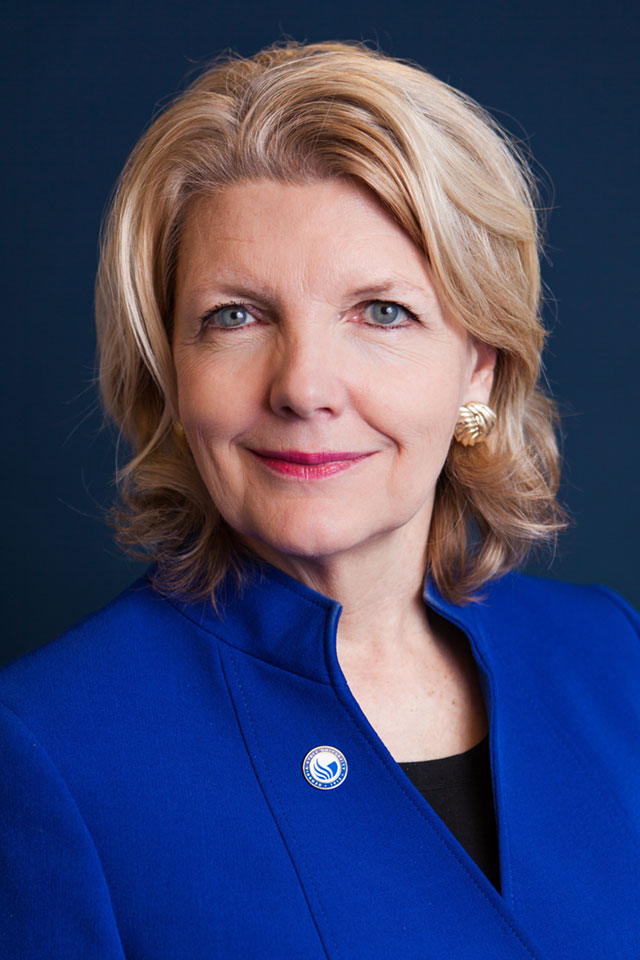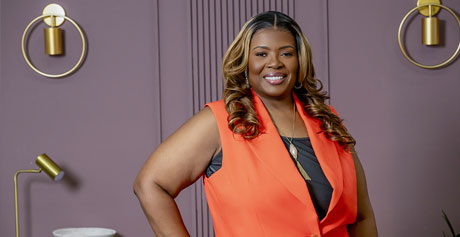Specializing in Hotel Management & Human Resource Management in the Hospitality Industry Meet Debra F. Cannon, Director & Associate Professor at Robinson College of Business, Georgia State University
 Q: Can you share with our audience why you chose to purse a career in Hotel Management and Human Resource Management in the hospitality industry.
Q: Can you share with our audience why you chose to purse a career in Hotel Management and Human Resource Management in the hospitality industry.
DC: It was a bit of a detour because I was initially looking at other business sectors. After graduate school, I met members of Hyatt Hotels’ leadership team and was so impressed with their corporate values and the emphasis placed on employees … I accepted an HR position at their flagship property, Hyatt Regency Atlanta. That experience provided a sound HR foundation in a quality service environment including proactive practices that were not found in many companies at the time.
Q: Tell us some of the accomplishments you achieved the time you spent with the Ritz Carlton and Hyatt Hotels.
DC: I was extremely fortunate to be involved with the opening of new hotels with both Hyatt and Ritz-Carlton. Having the opportunity to build new teams for three premier properties (Hyatt Regency Savannah, Ritz-Carlton, Buckhead and Ritz-Carlton, Atlanta) was a pivotal learning experience. I am particularly proud of the thorough employee selection processes implemented with both companies and the emphasis we placed on continual employee learning and development.
Q: What happened to make you you want to pursue a position as Director and Associate Professor for Georgia State University?
DC: I was teaching as an adjunct professor while working at The Ritz-Carlton, Atlanta. I had always loved school (as a student) and never expected that I would love teaching, but I did. That led to working on my Ph.D. degree and transitioning to full-time teaching. The administrative role came later after nine years in a faculty position.
Q: At the start of your career, what do you wish you had known?
DC: A lot of attention is placed on having mentors throughout one’s career which is important, but one also needs to develop advocates or sponsors. An advocate will be the person likely to recommend you for the next promotion, the task force or special project that can significantly catapult one’s career. A key component is to let those potential advocates know your career goals and where you want to go with the company. Give them this information and have the evidence in your performance record and accomplishments to represent you in the strongest way.
Q: Share with us some of the research you’ve worked on that’ been published.
DC: My research has primarily focused on strategic Human Resource planning in quality service environments. In addition, for almost ten years, I’ve studied generational differences in the work force. Diverse work teams are vital to organizational success but there are clearly significant differences in employee values based on several factors including generational. My focus has been on best practices of employers in creating and growing positive environments for diverse work teams to thrive.
Q: I understand AI/Robotics is going to play a big role in the Hospitality Industry … what effect do you think see will have and do you see other changes?
DC: We have the technology today to integrate artificial intelligence and robotics into many aspects of the hospitality industry. Strategically, however, hospitality companies must decide how this technology can enhance the guest experience. In some cases, the guest may never see AI/Robotics because of being applied “back of the house” (certain culinary functions, laundry, cleaning with robotics to the more conceptual areas such as revenue management with AI). In direct guest contact positions where advanced problem-solving, interpersonal skills and empathetic abilities are involved, I think contact with humans will remain key to meaningful and positive guest experiences.
Q: What was your first job? And how did it shape or impact you?
DC: My first jobs were in retail as a teen and I developed an appreciation of ethical behavior, service skills and going out of one’s way to make the customer happy. I developed a sincere appreciation for those who stand on their feet all day and remain friendly and helpful to even the most challenging customers.
Q: What are some of the best practices you have employed to enjoy a successful career?
DC: It’s so easy to get absorbed in one’s own career. In terms of truly enjoying a successful career, I think you must give back, pay forward. Some of my most enjoyable and meaningful interactions have involved trying to contribute in some way to another person’s career – whether as a mentor or helping create a network of career contacts.
Q: What’s the best part of your job as Director and Associate Professor?
DC: The best part of my job is working with great people – a dedicated and inspiring team of thought-leaders and scholars with the talented faculty; committed and supportive staff; involved and creative alumni and industry leaders and our industrious, smart students. There is no doubt in my mind that today’s millennials and the upcoming Generation Z will be innovative effective leaders.
Q: Can you tell our audience one of your most memorable moments your career?
DC: It’s memorable because it was one of the happiest and yet craziest times of my life: Within a time period of three months, I had my first child, started a faculty position at Georgia State University and completed my Ph.D. degree. I was running on pure adrenalin … certainly not on sleep.
Q: What’s one lesson you’ve learned in your career that you can share with our audience?
DC: A cliché that is often used is “never burn bridges” but it is one of the most valuable lessons I have learned throughout life. Always try to resolve differences ethically and professionally along the way. It is almost a guarantee that you will meet the parties involved again in your career.
Q: What behavior or personality trait do you most attribute to your success?
DC: Determination
Q: Which woman inspires you and why?
DC: While I have worked with many inspirational women, the foremost person who has inspired me is my mother. Having a successful career in real estate, she was known for her fair and ethical behavior. She never compromised her standards and was guided by her deep faith and spirituality. She was not a push-over, but her assertiveness was always combined with warmness, respect and a sincere care for others.
Q: What's your advice for women in male-dominated fields?
DC: Realize that women bring many attributes to organizations and don’t feel that you must “wear someone else’s shoes.” For example, don’t try to copy the leadership style of someone else – regardless of gender. Develop your unique abilities and be genuine and proud that your leadership style adds important dimensions to any group.
Q: What advice would you give to young women who wants a career in Hotel Management?
DC: Set your goals high. The hotel industry offers many varied career opportunities and women can be effective in all parts of the industry – including corporate levels and ownership. Get the educational foundation and work experience and there are no limits to your career potential in this industry.
Four Things About Debra F. Cannon
1. What book are you currently reading?
Michelle Obama’s Becoming
2. What’s your favorite movie?
Julie and Julia – a creative tribute to the legendary Julia Child
3. Where is your dream vacation?
Any place with a beach and ocean.
4. What’s the best piece of advice anyone’s given you?
“Do your best.” My parents throughout my childhood would always tell me this but I did not appreciate it until later in life.


